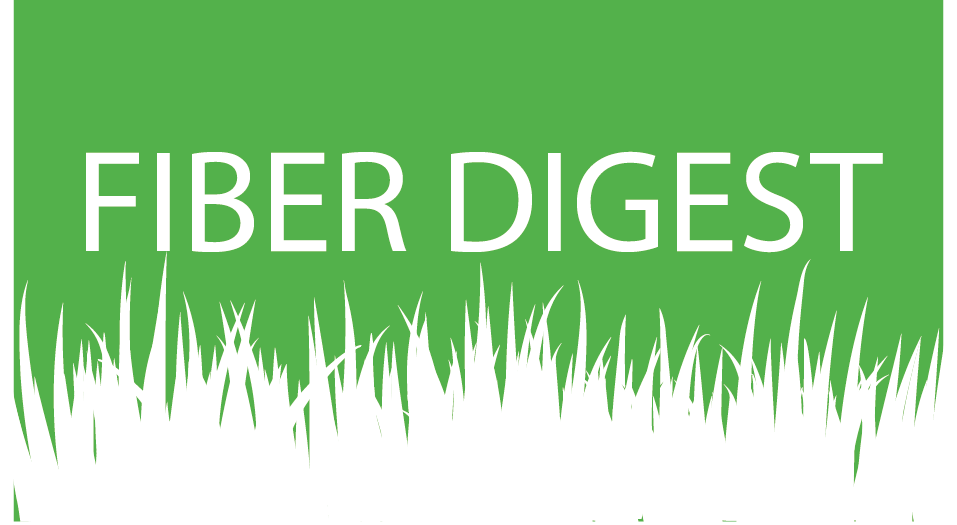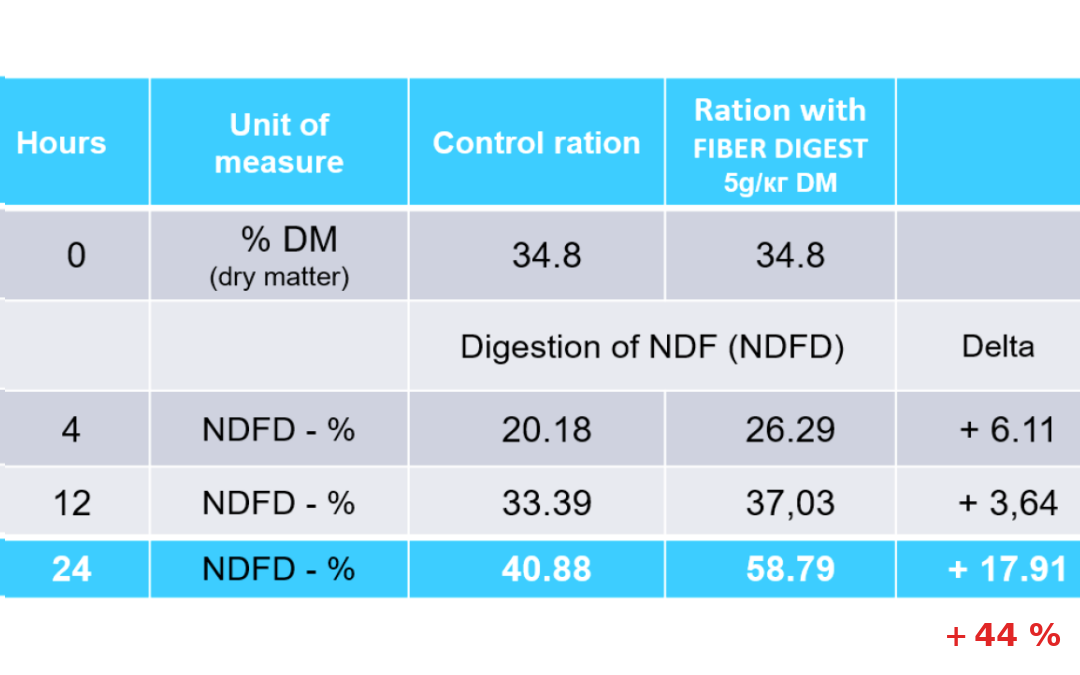
FIBER DIGEST is composed of Triglycerides, Diglycerides and Monoglycerides of Short and Medium Chain fatty acids.
FIBER DIGEST has been developed in scientific collaboration with the “University of Parma” to increase the degradation and digestibility of the NDF and to reduce the risk of subclinical acidosis.
Furthermore, specific 1-Monoglycerides contained in the product reach the gut and the colon, where the exert a beneficial modulation of the microbiota, reducing in a very significant way the pathogenic bacteria like Salmonella spp., Clostridium perfringens, E. coli
HOW FIBER DIGEST WORKS?
- EFIBER DIGEST exponentially increases the cellulolytic microbial population in the rumen; the NDF becomes more available. The increase of NDF degradation ranges from +20% to 45% depending on the ration.
- EFIBER DIGEST exerts an emulsifying action which avoids fiber coating by unsaturated fatty acids that can be present in the diet.
- EFIBER DIGEST supplies highly digestible saturated short and medium chain fatty acids which increase the energetic level of the diet.
MAIN BENEFITS
- EImprovement of protein content in the milk
- ELactation curve is maintained also in periods of stress or in presence of low-quality forages
- Emilk yield is increased, especially in periods of heat stress
- ERisk of acidosis is significantly decreased
- EEnteric pathogenic bacteria like E. coli, Salmonella, Clostridium perfringens are dramatically decreased
- ERisk of bacterial infection for calves is strongly reduced
CHARACTERISTIC
- EAvailable in dry and liquid form
- ENon corrosive
- ENeutral taste and odour
- EPackaging: 25 kg bag, big bags, 1000 kg IBC
- EHeat stable up to 200 ° C
- ECompatible with all ingredients of feed and premixes
- EProduced in GMP+ / ISO / QS / FamiQS certified facilities
Trial carried out by the University of Parma,
Department of Veterinary Medicine – Prof. Afro Quarantelli
Results obtained in artificial rumen on the digestibility of NDF
in a ration containing silage

The digestibility of the NDF was increased by 44% in 24 hours, which corresponds to an increase of NEmilk = +12% and to an increase of produced microbial protein = +6%.
